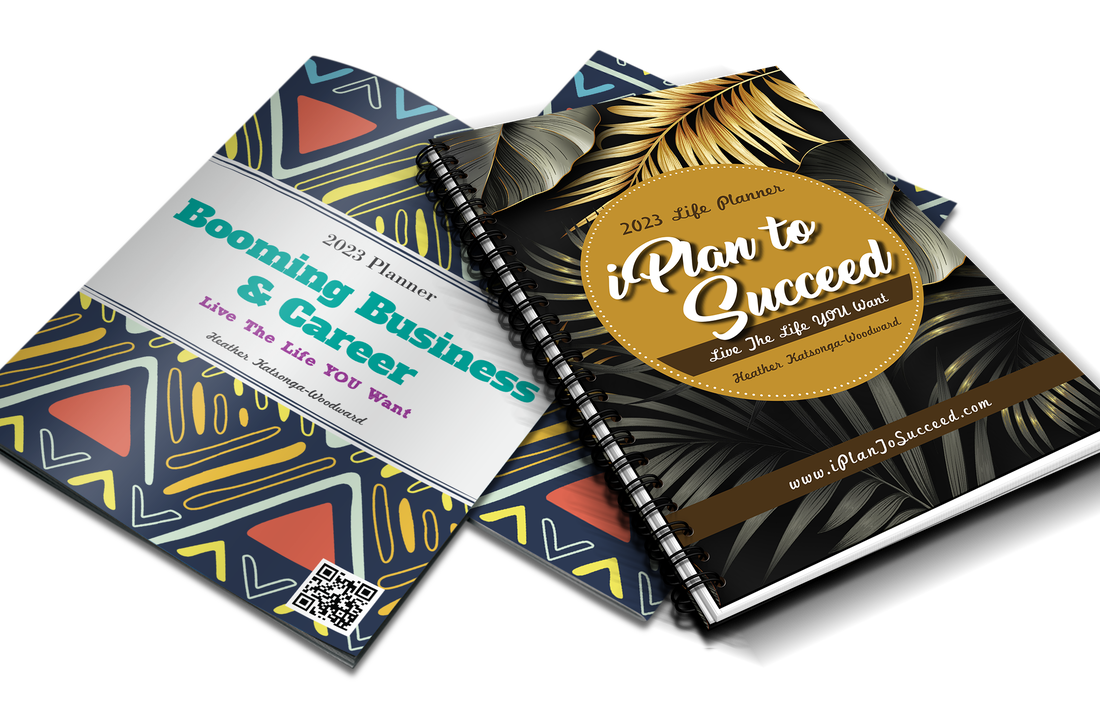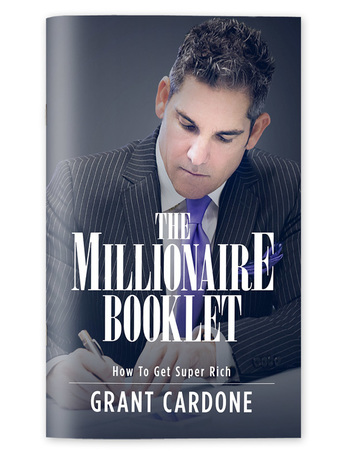 Rating: 5/5 I find it hard to argue with anything Grant Cardone ever says – sometimes he even writes things almost exactly as I have written them in some of my wealth writings. As you might know from previous book reviews I am a massive fan. He is an awesome sales person and I love his go-getting attitude. Frequently authors can’t narrate their own books better than a professional narrator would but Grant Cardone is one amazing narrator. Just to give you an idea of how much I love the guy, I wanted to call my son Grant Cardone Woodward but the good husband forbade it. Given I’ve read better books by Grant this isn’t life changing and its advice may perhaps seem basic but in the 2 hour audiobook he reminds us what success takes. The Millionaire Booklet is spirit renewing. One of my favourite lines in the book comes when he decides to become a real grafter and essentially stops going out. Grant's friends were like "we never see you in the club, Grant, what's going on?" and he was like, "You never see me in the club just like I never see you at the bank"! Boom, in your face. It's this forthrightness that makes me like the guy so much. As with all his books, the book made me feel ready to conquer the world and made me want to get out there and find who’s got MY money. The Millionaire Booklet is available on amazon.com and amazon.co.uk. My other book reviews: By the way, did you know that Grant Cardone built his $400 million fortune through property? Yes, he did - if you want to do the same thing, check out my property course.
0 Comments
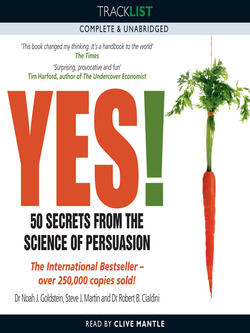 Rating: 4 / 5 Who doesn’t want to be more persuasive? Whether you own a business or not you’re constantly in the business of trying to sell something – your great traits as an employee or wife(!), a project or even an idea. Heck, if I got a penny for every time one of my mummy friends said, “I want to do x but I just need to convince my husband”, I’d be richer than Donald Trump! I’ve had the paperback version of Yes! For ages but it’s only when I got the audio version that I got to the end. The book is based on the subtle changes we can make to influence a decision. All 50 examples in the book are based on empirical studies so they are scientifically proven to work. There are 50 ideas in this book so there is no way I can summarize them all but a few examples include the following:
There were tonnes of good tips here and I, in fact, feel I should re-read this book because I was very distracted over the period I read the book. I’m preparing for a property renovation so I was driving along half listening to the book and half thinking about the different tiles I’ll put in each one of my bathrooms. Everyone has to sell something, even if it’s just yourself or your views so give this book a read to become more of a gentle persuasion artist. It’s available on amazon.com and amazon.co.uk. 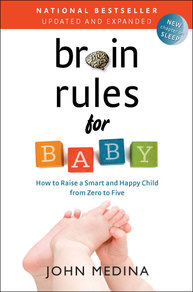 Rating: 5/5 A real gem of a book, I wish I had found this book before I became pregnant because I might have done things a little differently. That said, I don't think I got it much wrong. In this book John Medina discusses how a baby's brain works based on other people's studies as well as his own experience as a parent. If I'd been taking notes I would have written a little novella myself but a few things stuck nonetheless. I couldn't even begin to cover the breadth and depth of information covered in this book so if this kind of things does interest you, get the book. So in summary:
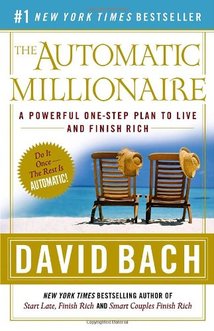 5/5 I didn’t learn anything completely new in this book, however, I was reminded of what matters when it comes to building wealth and a good credit record. It’s the sort of stuff I talk about in Black Girl Getting to Wealthy: Build Super Savings (available on amazon.com, on amazon.co.uk and other local amazon sites). The biggest take away: automate your financial life! Your savings, your mortgage payments and your bill payments should all be automated so that you don’t forget to save. I do this. What helps is holding different bank account for different things. So in our household we have a joint bank account from which all bills are paid and each month a given, fixed amount goes in there. We have a savings account to which our savings are automatically placed. And now, because our property portfolio is growing ever larger we have designated an account that I wasn’t using for all rents from property investments to be received, mortgage payments to be made and property related expenses to be made. In addition, the moment our son got a birth certificate back when he was a month old we opened a bank account for him and each month we place £250 into that junior ISA (£125 from mama, £125 from papa). The money goes there automatically so does his child benefit of £20/week from the Government. How much will he have on his 18th birthday if we just let things be and the money continues flowing into his account and assuming he gets a rate of at least 3% per annum compounded annually? Fyi, he’s been getting 4% in interest since we opened the account so this is not a foolish assumption. £97,432 – that could fund a deposit on a property, pay for university plus leave plenty of change for a round the world trip. If we stopped saving on his fifth birthday he would still have £35,450 in his account on his 18th birthday if the saved money continued to earn at least 3%. If he continues to enjoy the 4% he’s getting at the moment that will be a whooping £107,752 on his 18th birthday if we save until then. The power of compound interest. A sensible book that I recommend; get it on amazon.com or amazon.co.uk. 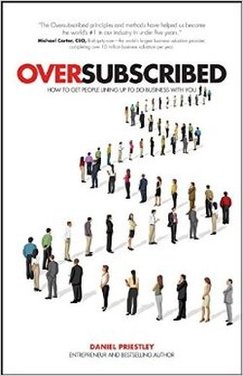 Rating: 5 / 5 Business and enterprise is a journey. It doesn’t matter which books you read, you will inevitably make mistakes; that’s part of the process. If someone presents you with a full roadmap to achieving your dreams you can’t skip fundamental steps and still expect to get where you’re going. Yes, you can take shortcuts by implementing some ideas and concepts in an innovative way so that you drive straight through some stumbling blocks but there are certain fundamental roads you cannot skip. I feel all of Daniel’s concepts are actually easy to implement and don’t leave you asking a million more questions that you can’t answer yourself. Some of the successful people I follow seem to have gotten there by simply being in the right place at the right time without a system they can teach others to follow. Daniel Priestley isn’t one of those. This is why he’s used the same system to grow a few businesses. He’s a very impressive thinker. Having a core team is one of his key suggestions. I’ve been running my own business for over 3 years now and I’ve avoided employing people full-time because I thought it was a major hassle. I saw it as an inconvenience because I couldn’t be bothered to deal with employment legislation. I’ve done a lot by leveraging third-party services such as contract manufacturers, fulfilment houses and freelancers and it’s paid off as the $202,000 made on Amazon USA proves, however, it’s becoming clear that further growth will require a team. I finished listening to Oversubscribed and two weeks after taking stock of where my business has gone I’ve realised that I now own my job! My inbox fills up at an atrociously rapid rate which is great because it means something is working but it also means I have to take my laptop on every holiday.
I can work from anywhere in the world, I only work a few hours a day and indeed I hold inventory in the US and in the UK now so I am essentially a one-woman multinational with no full time employees – even I don’t work full-time hours **gasp**. But, what’s the point of carrying your job wherever you go? A business should reach a point where you can go away for two weeks without checking your inbox at all with an expectation that things will still run smoothly in your absence. These are some of my reflections since reading Oversubscribed and I’ll definitely have more on the second listen of the audiobook but I’ve also taken fundamental action. This week I viewed offices for the first time and I am about to start advertising for two roles. One of the roles has been filled before I’ve even committed to the office facilities. A fellow Cambridge grad and friend believes in the work I’m doing so much he’s coming on-board. He’s an engineer with a completely different skill set to mine so it’s a perfect complement. Ultimately, when you read Oversubscribed you will more than likely be inspired by different elements of the book to the ones that inspired me. It all depends on where you are in your business. Employing people is a huge step but when you hire people each person is not just a cost centre but also a revenue centre. A small business with a limited budget has to spend money in the right way so hiring the right people upfront is key. After that you need to track your progress weekly if not daily to ensure you’re on the right path. Having completed Daniel Priestley’s Key Person of Influence program I continue to learn so much from him and the community he’s built. For that, I am grateful. 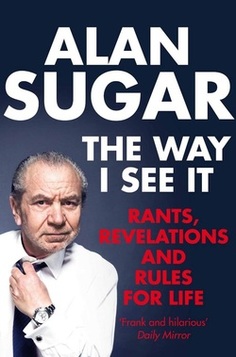 Rating: 5/5 I actually started reading this book in Feb-2014 as Harry and I flew into India. I was due to be interviewed for The Apprentice and thought I needed to do a little research. Whilst I don’t agree with all of Lord Sugar’s opinions I enjoyed his book. He is definitely very switched on and the book was 100% authentic. It stays true to the persona that he portrays. I personally don’t find him to be “mean” on The Apprentice, he is realistic. He doesn’t pussyfoot around and he doesn’t like nonsense. I am very much like that too. Lord Sugar isn’t afraid to offend people. If he doesn’t like you, you will know about it. There’s no pretense with him; very few would dare to describe someone as “That nasally congested hag Janet Street-Porter”. Some Amazon reviews I read prior to this purchase thought he sounded misogynistic, I beg to differ. If you’re a small business the points he raised about maternity leave etc. were very valid. Employees just don’t see things the same way because they have a limited idea of how money is earned. Their concept of credit risk, exposure and the costs of hiring and training is very limited; importantly, even if you understand that stuff in principle you can never fully understand the pain until you are actually running a business. In the book, Lord Sugar goes through many of his thoughts including:
Some of his pearls of wisdom include:
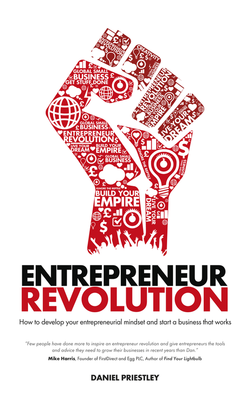 Rating: 5/5 An inspiring and practical read. I listened to most of this audiobook during a twelve-hour drive from Harare, Zimbabwe to Blantyre, Malawi. My notes: Daniel Priestley talks about how we all have an empire building brain, however, the empire brain can be shut down if the lower parts of the brain (reptile or monkey) are over stimulated. The reptile sees resources as very scarce so it's extremely selfish, guarded and doesn't want to share; it only sees what is there; it's very low in imagination. The monkey is good at repetitive work but is very easily distracted. The empire builder is empathic, creative, strategic, resourceful. As one of his 10 challenges, he recommends walking around with GBP1,000 in cash at all times to adjust your views on what is a lot of money, to learn a degree of self-control and I suppose to discover other fears and emotions that go with carrying what most of us would consider to be a fairly hefty, even unsafe, amount of cash. Take two people you want to get to know better out to lunch every week. Cut news out. Keep a journal. Always have 5 people on your team:
Lean in! i.e. go for it, network aggressively, seek opportunities, visualise and believe in the vision! Formula for success: luck, reputation and vitality Ascending Transaction Model - ATM:
7 Maxims
I recommend you read this book for practical steps that will push your vision/business forward; here are links to its Amazon.com and Amazon.co.uk page respectively: 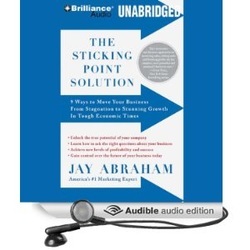 Rating: 5/5 I looked Jay Abraham up when I read somewhere that he was the only billionaire marketer in the world. For a very full review of the book read Alex McClafferty's take on The Sticking Point. My chapter summaries: Chapter 1. Leverage other people efforts, ideas, knowledge, resources, relationships and mula! Chapter 2. Think of ways to generate the most amount of income using the least amount of investment/effort, e.g. with win-win proposals to advertisers. Chapter 3. Pull in clients with great copy.
Chapter 4. Identify and quantify your target market - define your solution very specifically. Chapter 5. Delegate! Chapter 6. Save money by:
Chapter 7. If it doesn't work, stop doing it! Pivot. Chapter 8. Change the game! Chapter 9. Great content is the best marketing strategy ever! Chapter 10. When it comes to partnership DO NOT:
Chapter 11. Create a defence and offence 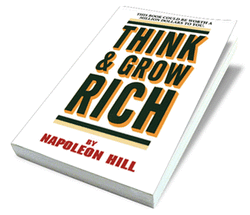 Rating: 5/5 This is another timeless business classic. I have been wanting to read this book for years and I am so glad I eventuality got to it! I mostly listened to this audiobook when I was driving so my notes are sketchy, not nearly as comprehensive as usual. That said, here are some useful takeaways: On fate. "I am the master of my fate, the captain of my soul." I love that line because it puts responsibility on the individual - not your parents, the Government, siblings or friends. As much as a support unit is important, understanding that you can control where your life goes inspires me to work harder. On desire. "Desire is the starting point of all achievement." Who can argue with that. What you visualise in your head, you can execute. No one thinks like you and only you can fulfill your vision or goal. "You don't just need an ordinary desire to succeed and progress but a keen, pulsating, definite desire." On visualisation. "Believe as though your desire is already a reality." This helps you to accomplish it. "Any subconscious thought which is repeatedly passed on to the mind is ultimately accepted by it... Faith is the only known antidote for failure." On making sacrifices. "You and you alone must decide whether the effort required to achieve the reward you desire is worth it." Think about that one. On worry. "Reach a blanket conclusion that nothing which life has to offer is worth the price of worry. With this decision comes poise and peace of mind." This suggestion was very important for me right now because I have been worrying far too much. On troubles. "Don't expect troubles because they have a habit of not disappointing." I love that! I liked Schwab's anti-greed principle. He believed that if you make a product cheap (steel in his case) more uses will be found for it leading to an ever-expanding market. That's profound. A couple of verses I enjoyed:
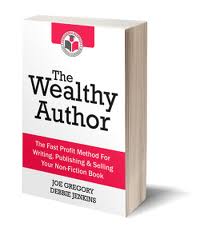 3.5 / 5 I learnt something from this book but I think it would be much more helpful for someone very new to writing and book publishing. I have a year and a half's worth of research on writing and self-publishing and I'm sure this book would have rated higher in my estimations if I'd caught it at the beginning of that journey. If you want to get into writing and don't know where to start, get it for sure, I recommend it. Get the kindle book though, the paperback is overpriced! |
Heather Katsonga-WoodwardTime allowing, I love to read. If I read anything interesting, I will blog about it here. 2019 Life and Career PlannerCategories
All
Archives
January 2019
|
Heather Katsonga-Woodward, a massive personal finance fanatic.
** All views expressed are my own and not those of any employer, past or present. ** Please get professional advice before re-arranging your personal finances.




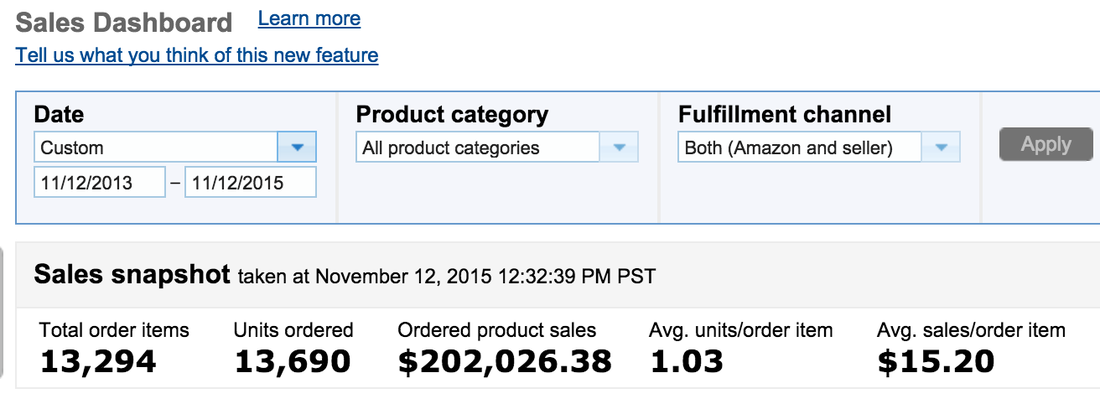






 RSS Feed
RSS Feed
